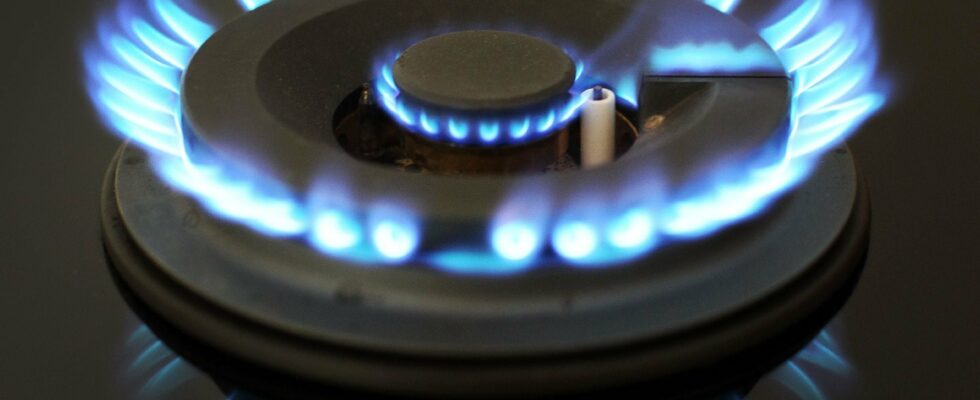Bad news for our wallet. After a few months of respite, the average price of the gas bill for millions of French people will increase by 11.7% in July compared to June, the consequence of a rebound in prices and especially a revaluation of network prices. of distribution.
It’s a paradox: while gas prices are oscillating at levels ten times lower than the peak of the energy crisis in the summer of 2022, millions of French people are about to see their bills increase significantly. The average level of the reference price will be at 129.2 euros including tax per megawatt hour (MWh) compared to 142.7 euros/MWh in June, according to this monthly reference index published Monday by the energy regulatory commission (CRE).
The price remains below the average price of January 1, 2024
Since bills are often presented in KWh, this corresponds to a gas reference price for July of around 13 cents/KWh. The regulator puts things into perspective: even if this price is increasing compared to June (+ 11.7%), it remains 3.5% lower than the average price of January 1, 2024. According to the energy policeman, the annual invoice including tax of a residential customer in an offer indexed to this “benchmark price”, would stand at 1,184 euros at the July price, compared to 1,060 euros per year in June, and 1,227 euros in January.
The reason for this increase? It is mainly due to the CRE’s decision in February to revalue for four years the tariff for transporting gas which arrives to homes and businesses, in other words, the toll that the network manager GRDF charges suppliers. This network share, which accounts for a small third of the bill, “increases a little since we are spreading rising costs over falling consumption”, Emmanuelle Wargon, president of the CRE, explained to AFP.
In the period 2021-2023, the country’s gas consumption has in fact fallen by 20%. However, the networks are still there, and must support increasing maintenance costs while allowing the gradual integration of biogas.
Bring in the competition
For several weeks, certain suppliers such as EDF and Engie have informed their customers that they would pass on the increase to their invoices. TotalEnergies has indicated that it will pass it on to indexed offers, but not to fixed price ones.
“Most gas supply offers are indexed, both on the subscription and on the price of the kWh, on the benchmark price”, a sort of price compass that the CRE has published every month since the disappearance of regulated prices in 2023 , explains UFC-What to choose. “However, this indicator includes the new transport rates.” But fixed price offers can also provide for revisions to reflect possible increases other than those in the price of gas itself.
In fact, “the vast majority of consumers will see this increase (in the network rate) passed on to their bills”, i.e. most of the 10 million residential customers connected to the GRDF gas distribution network, summarizes the Energy Mediator at ‘AFP. In its February decision, the CRE predicted an increase in the July bill of 5.5% (for gas-heated households) and 10.4% (for cooking/hot water consumers).
The average impact on the bill, all options combined, will ultimately be +11.7% to also take into account the “increase observed in recent weeks” in wholesale gas prices on the markets, contrasting with the decline observed since January .
The drop in prices had made it possible to mitigate a previous increase in the bill which occurred on January 1st. This resulted from the government’s decision to double a tax, just before it announced for February an average increase in the electricity bill of 9%, again due to the increase in a tax . These measures demonstrated the government’s desire to exit the costly gas and electricity price shield introduced in 2021, even before the war in Ukraine caused a surge in energy prices.
With the July increase, “the advice is: look carefully at the offers and take advantage of the competition,” says Ms. Wargon. To do this, they can consult the Energy Mediator’s online comparator.
